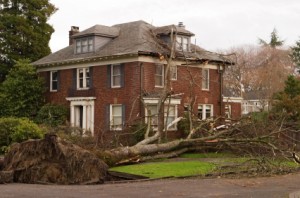 A big storm is threatening the East Coast, and my buddy Elizabeth Razzi had some good advice yesterday for getting ready:
A big storm is threatening the East Coast, and my buddy Elizabeth Razzi had some good advice yesterday for getting ready:
“From my experience, most important prep includes doing ALL the laundry, making milk jugs of ice for the fridge, clearing leaves from drains and having a good supply of ground coffee for the French press.”
At the same time, Ann Carrns over at the New York Times’ Bucks blog was wondering about “Keeping Cash on Hand, Just in Case.” Carns asked whether it might be prudent to have a stash of green in case hackers took down an ATM network. Of course, the more likely scenario is that nature will be the culprit: hurricanes, floods, earthquakes, blackouts and other disasters can make getting cash tough.
I’ve kept a stash of cash handy ever since I lived in Alaska, land of extreme weather and earthquakes. Up there, I also learned to keep a two-week supply of food, water and fuel at home, to carry emergency supplies in my car and to always keep the car’s gas tank at least half full. (You can learn more about emergency preparedness at www.ready.gov, among other sites.) Our supplies include camp stoves for cooking, since both gas and electric lines can get disrupted. You can get single-burner camp stoves for about $20 and propane cylinders for around $5.
We’re so used to modern conveniences, from a ready supply of electricity to a steady supply of ATM cash, that it can be hard to imagine what we’d need to survive life for several days without them. If you’ve ever flipped on a light switch when you knew the power was out, you know what I mean—our brains really aren’t wired for disaster. But taking a few minutes to gather some supplies, check flashlight batteries and tuck away a little cash can make getting through any disruption, by nature or otherwise, a lot easier.
What emergency preparations have you made? What do you still need to do?